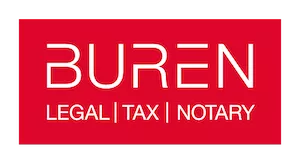- within Privacy, Transport and Finance and Banking topic(s)
- with readers working within the Consumer Industries, Insurance and Transport industries
The Bureau for Investment Screening (Bureau Toetsing Investeringen, "BTI") recently published guidelines to provide clarification regarding the scope of the Investments, Mergers and Acquisitions Security Test Act (Wet veiligheidstoets, investeringen, fusies en overnames, also referred to as "Vifo Act"). The Vifo Act applies to Corporate M&A activities of companies that are active as vital providers of (highly) sensitive technology, operators of corporate campuses, or vital infrastructure providers in The Netherlands. The BTI is responsible for the substantive screening of these investment activities.
The BTI guidelines relate to the following topics:
The BTI guideline 'Assets' focuses on whether obtaining or purchasing certain assets qualifies as an acquisition activity that fall within the scope of the Vifo Act.
Definition of assets
The purchase of assets can take place through obtaining certain
business units, personnel, machinery and/or intellectual property.
An agreement may serve as the basis for the purchase, including
outsourcing agreement or asset purchase agreement (APA).
Assets may come in different forms and will be assessed on a case-by-case basis. The BTI guideline states a non-exhaustive list of different forms of assets, including
- Knowledge;
- Intellectual property rights;
- Key personnel;
- Trade secrets;
- Supplier contracts;
- Property, machinery, equipment, supplies, raw materials, vehicles and
- inventory; and
- Portfolio of customer contracts.
If the asset is essential for the performance of an activity in the field of sensitive technology, this may – depending on the uniqueness of the asset – be sufficient to independently qualify as a target company that requires notification with the BTI under the Vifo Act. Ownership of intellectual property rights is not decisive; having certain licenses or knowledge in the public domain can be considered as being active in the field of sensitive technology.
In the event that assets are held in a community and the acquisition takes place by trading of bond rights, this could also be considered as an acquisition activity for the purposes of the Vifo Act.
The (ability to) operate as a target
company
Acquisition of assets in relation to a target company will fall
under the scope of the Vifo Act if the relevant asset is essential
for the target company to operate as a vital provider of sensitive
technology, operator of corporate campuses or vital infrastructure
provider. Pursuant to the Vifo Act, there must be a portion of the
target company that can continue as a separate business division
before the purchase can take place. The ability to operate
independently and continuously as a (target) company depends on the
circumstances of the particular case, including the degree of
interrelation and dependency between the part of the business
activities that will be transferred and the part that will remain
with the target company.
The BTI guideline includes several factors for determining the ability to operate as a target company:
- The ability of the business unit to report independently;
- Own customers, products or services linked to the business unit;
- Employees working mainly at the business unit;
- If the business unit operates under a separate license, patent or similar rights in comparison with the reminder of the target company;
- Separate premises or physical assets of the business unit;
- Acquisition of knowledge and skills for own production of sensitive technology;
- Granting certain specific territories that generates revenue.
In addition to the above, the purchase of the assets needs to generate revenue by the acquired entity. A charitable or other non-profit purpose does fall outside the scope of the Vifo Act.
Conclusion
The guideline provides M&A practice with valuable practical
insights on the definition of 'Assets' in this context.
Please note that the guideline may be amended and updated by BTI
from time to time based on changing insights, developments in the
market / technology or as a result of amended regulations.
If you have any questions regarding the Vifo Act or require assistance with filling in the BTI notification form, please contact Friederike Henke, Susanna Tang or any of the other BUREN specialists of our Corporate department.
The content of this article is intended to provide a general guide to the subject matter. Specialist advice should be sought about your specific circumstances.



